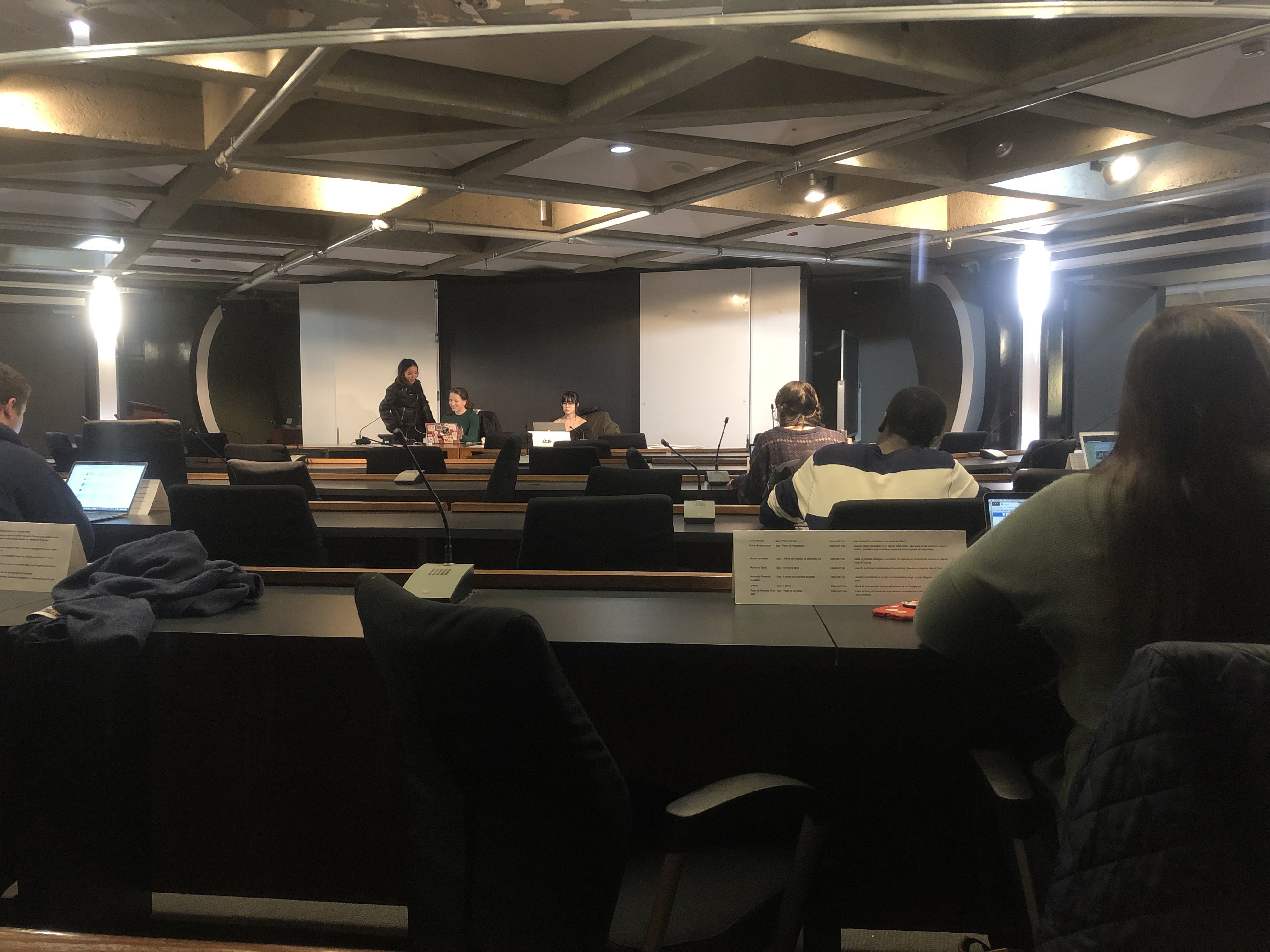The Arts Undergraduate Society (AUS) Legislative Council convened on Jan. 29 to discuss several issues, including a controversial award given to a McGill professor, expanding the Arts Undergraduate Improvement Fund (AUIF) budget, and the AUS elections.
The meeting opened with the Motion Regarding Condemnation of McGill Faculty of Arts Promotion of Turkish Academy of Sciences (TÜBA) Award. In 2019, Turkish President Erdogan presented Jamil Ragep, a professor in McGill’s Institute of Islamic Studies, with an award from the TÜBA.
The World Islamic and Middle East Studies Student Association (WIMESSA) President Damla Cakmak explained that the motion would denounce the Faculty of Arts’ promotion of the award, since TÜBA is linked to a government with a history of human rights violations, such as the continued abuse of Syrian refugees by border patrol.
“We […] condemn the promotion of this award by the Faculty of Arts,” Cakmak said. “TÜBA is no longer a legitimate scientific institution, due to ties with the government […] TÜBA’s members are elected either by President Erdogan or […] other government-affiliated institutions.”
Brent Jamsa, Vice-President (VP) External of the Canadian Studies Association of Undergraduate Students (CSAUS), asked whether Ragep was aware of the human rights abuses that TÜBA is associated with. According to Cakmak, Ragep was contacted prior to his acceptance of the award.
“Before he went to Turkey to get the award, two representatives from WIMESSA approached him and had a […] conversation with him about how problematic it would be to get an award from […] an institution with a long list of human rights abuses,” Cakmak said. “He knew very well that the students were not happy with it.”
The motion passed unanimously, with five people abstaining.
The council also increased the Arts Undergraduate Improvement Fund (AUIF) budget for renovations in classrooms and ratified the AUS Food Sales Policy. The policy outlines the procedures and equipment that AUS departmental associations must follow in accordance with Quebec’s food health and safety protocol. It is similar to that of the Students’ Society of McGill University (SSMU), except that AUS student clubs and organizations do not need to pay a fee and can only serve food on two specific tables in the Leacock Building.
Finally, VP Social Kimberly Yang proposed a motion to extend the AUS campaign dates to include polling period, which will be occurring from Feb. 17 to 19, so that candidates can share their platforms on campus and social media during elections. Arts Senator Henrique Mecabô remained skeptical on the matter.
“My concern is that if somehow a candidate realized that they were losing the election, as polling continues, they would be able to spend a lot of money on Facebook ads,” Mecabô said.
However, due to campaign spending limits and the inability of candidates to see election results until after the polling period closes, the council agreed that this would not be an issue, and the motion passed.
Sound Bite
“We don’t release daily updates or anything like that, so you don’t know [the results] until [the] polling period closes, and the only person I know on campus who has run Facebook ads was SSMU President Bryan Buraga, so I don’t think it’s a common thing.” – AUS President Jamal Tarrabain, on the use of Facebook ads in AUS elections.
Flashback
Jamsa criticized democratic backsliding in Turkey but questioned why the AUS Legislative Council would condemn Ragep’s award while student government organizations at Duke University, where another professor received the same award, chose not to do so. Cakmak responded that, regardless of other student bodies’ decisions, the council could still make a difference on the McGill campus. VP Academic Ananya Nair echoed this, saying that when a department distances itself from an award, it speaks volumes.









